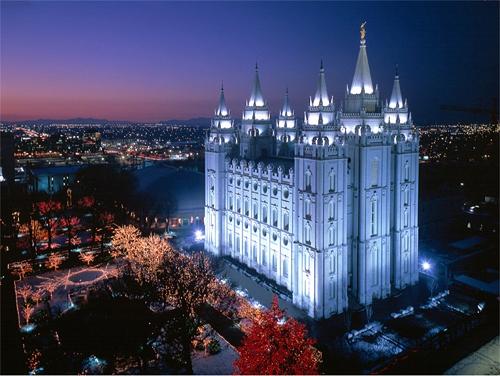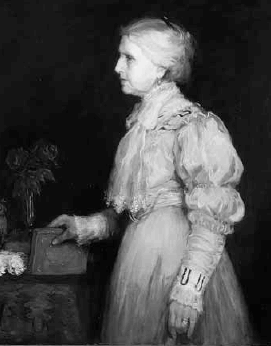The stories are circulating the internet that President Obama’s mother is now a Mormon according to Mormon records, because a posthumus baptism was done on her behalf. It’s important to understand how names come to be submitted and what it means when the work is done. It does not mean she is a Mormon; nor does it mean her name has been added to church membership records.
Mormons are instructed they must only submit names of direct ancestors and their immediate family (parents, siblings, etc.) unless they have permission from the family. Not every Mormon knows the rule, however, although it is written in the places where submissions are made, and many feel they are helping people they consider special by submitting their names. Therefore, when a name is inappropriately submitted, it is due to a misunderstanding of the rules by the member who submitted it. Since they can be submitted online, there is generally not a worker who can ask them about the names they’ve submitted. The church itself does not submit these names and does not give permission for the practice. Of course, as you go further back into a famous person’s genealogy, there are LDS church members who can legitimately submit the names because they are also descendants of the ancestors.
A church member who finds she shares ancestors with President Obama can submit those ancestors, but cannot continue forward through the line to President Obama’s mother. So, for instance, if a member shares her sixth great grandmother with President Obama, she can submit that grandparent and the grandparents’ immediate families. She can continue further into the past, because those are her direct family, but cannot move forward, all the way to the present.
When a name is sent to a temple, the work is done by a living proxy. This person may be a descendent, or it may be someone using a randomly assigned name that was submitted by another church member. It’s important to understand what Mormons teach about that deceased person.
The Bible teaches that baptism is necessary for eternal life. “Then Peter said unto them, Repent, and be baptized every one of you in the name of Jesus Christ for the remission of sins, and ye shall receive the gift of the Holy Ghost.” (See Acts 2:38.) Even Jesus Christ, who had no sins to repent of, insisted on being baptized, because it was a required action. Baptism is not an optional commandment.
Many religions struggle with this particular issue, because they realize there are those who had no opportunity to choose baptism, and to deny them eternal salvation due to something beyond their control conflicts with their understanding of a loving God. The Bible gives us the answer to this problem. Paul asked the Corinthians: “Else what shall they do which are baptized for the dead, if the dead rise not at all? why are they then baptized for the dead?” (1 Corinthians 15:29). It is easy to understand the meaning of this question. He asked the people why they were doing baptisms for the dead if the dead didn’t rise. Well, of course, the dead do rise. He was not explaining baptisms for the dead; he was teaching that the dead do rise and that this was the purpose of these proxy baptisms. Baptisms for the dead were something they obviously already knew about, since he didn’t take any time to explain them. It was in practice at the time and lost in the apostasy. Paul knew, as did Jesus’ other followers, that baptism was necessary for salvation, and that a loving God provided for the challenge of having people die prior to receiving the gospel.
However, God also gives us agency. No one is forced to become a member of God’s church, even if he knows it is true. This gift of agency does not end with death. A baptism by proxy only gives the deceased person the opportunity to accept baptism on his behalf. He is first taught the gospel, just as he would have on earth. Even though at this point, he clearly knows what is true, he is free to reject it if he chooses to do so. Even during life, some people who have received confirmation of the truthfulness of the gospel decide they prefer not to accept or live the truth, and this is also true after death. We continue to be ourselves after we die.
The work can be done one year after death, allowing time for this instruction to occur and for the decision to be made. When the work has been done by a proxy, the deceased person decides whether or not to accept the gift that has been offered. If he rejects it, it is as if it never happened, and he goes on with the life he has earned and chosen. If he does accept, then the proxy ordinance is accepted just as if it had been done by him in his lifetime.
The baptized person is never placed on the records of the earthly church, since we do not know who accepted or what their choices are in Heaven. Those records are kept in the heavenly realm. Here, the only record kept is that the work was done, giving that person the option to accept or reject.
The answer to the question, then, of whether President Obama’s mother is a Mormon is that she is not. The church cancelled the baptism. This means that if she accepted the baptism, the privileges of baptism have been taken from her until one of her own descendants converts and has the work redone. If she had rejected it, nothing has changed for her anyway. Even if the baptism had not been cancelled, her name was never on the records of the earthly church as a member, and she would be a Mormon in Heaven only if she chose to be.
About Terrie Lynn Bittner
The late Terrie Lynn Bittner—beloved wife, mother, grandmother, and friend—was the author of two homeschooling books and numerous articles, including several that appeared in Latter-day Saint magazines. She became a member of the Church at the age of 17 and began sharing her faith online in 1992.




